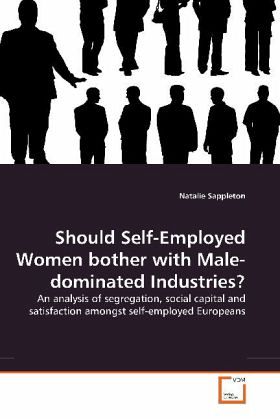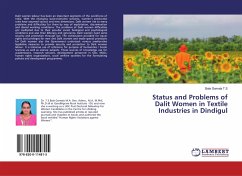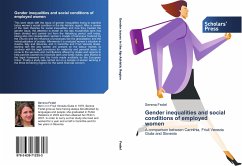
Should Self-Employed Women bother with Male-dominated Industries?
An analysis of segregation, social capital and satisfaction amongst self-employed Europeans
Versandkostenfrei!
Versandfertig in 6-10 Tagen
32,99 €
inkl. MwSt.

PAYBACK Punkte
16 °P sammeln!
Although there are more self-employed women in Europe than ever before, the migration of women from employment to self- employment is largely occurring in education, health care and community work. This "entrepreneurial segregation" is largely responsible for sex-based differences in self-employment earnings, but little is known about the impact on social capital and general wellbeing. Using data from the European Social Survey 2006, this book examines the relationship between self-employment in a male-dominated and female-dominated sector and social capital and satisfaction. Women who are sel...
Although there are more self-employed women in Europe than ever before, the migration of women from employment to self- employment is largely occurring in education, health care and community work. This "entrepreneurial segregation" is largely responsible for sex-based differences in self-employment earnings, but little is known about the impact on social capital and general wellbeing. Using data from the European Social Survey 2006, this book examines the relationship between self-employment in a male-dominated and female-dominated sector and social capital and satisfaction. Women who are self-employed in traditionally female sectors have the highest levels of social capital and satisfaction, but those based in traditionally male sectors fare significantly worse on these dimensions. Additionally, self- employed men who work in gender atypical sectors have lower levels of social capital, but, like their female counterparts, men working in male-dominated sectors have reduced levels of job satisfaction. The book explores explanations for these curious findings, concluding by discussing the implications for current and future European policy and research.












